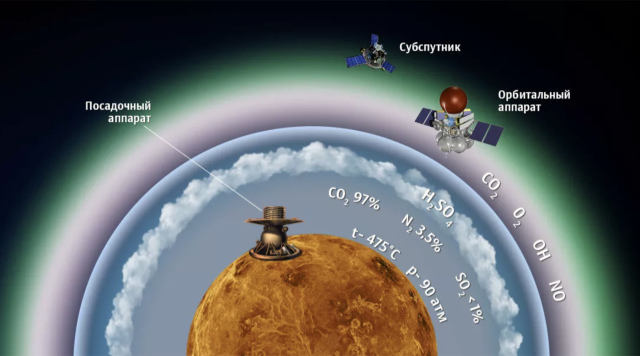Russia must implement the Venus-D project by 2030, otherwise it will "fall out" of the three great space powers. This was announced on November 29 by Dmitry Rogozin, CEO of the Roscosmos State Corporation.
"We have to do it by 2030 in any case, otherwise we will fall out of the top three great space powers," he said after the ceremony of awarding the Gagarin prizes of the Government of the Russian Federation in the field of space activities for 2021.
According to Rogozin, if the United States refuses to participate in the project, Russia will still implement it, but in this case the device will have a different functionality. Another foreign partner may also be considered for implementation.
In May, Roscosmos allocated 318 million rubles for the first stage of the creation of Venera-D, a Russian automatic station for exploring Venus.
Prior to that, on March 4, Lyudmila Zasova, head of the Laboratory of Spectroscopy of Planetary Atmospheres at the Space Research Institute of the Russian Academy of Sciences, announced that the start of the Russian mission to Venus is scheduled for 2029. According to the expert, the design of the Venus-D spacecraft for exploring the planet's surface has already begun.
On October 3, 2020, it became known that the Russian Venus research program could be supplemented with an urgent mission to study possible signs of life in its atmosphere, after scientists from the UK found traces of phosphine there. Its presence may indicate the existence of life on the planet.
On September 15, 2020, the head of Roscosmos, Dmitry Rogozin, commenting on reports about the presence of biomarkers on Venus that may indicate the existence of life there, noted that this discovery is not direct proof.

